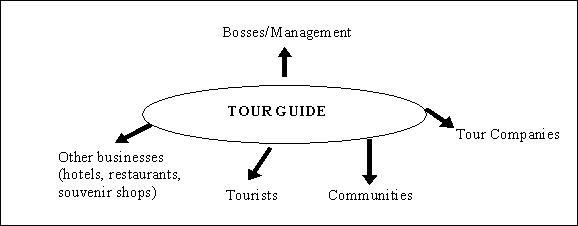VUSSC/Content/Tourism/Applying Effective Communication Skills/Conversational skills
Conversational Skills
John Donne wrote that ‘No man is an island”. Therefore, it is important that we engage in communication activities to be part of this world. This unit discusses the ways and processes to communicate effectively with individuals and with groups.
What is a conversation?
A conversation is a talk or discussion between two or more persons. It is one of the means to verbally give or share information. Conversations can be effective or unnecessary, that is useful or humorous. For business, it should be towards a specific rationale. A conversation uses speech.
Speech is important when communicating. It is not only what you say, but also how you say it. Therefore, it is important to recognize the type of words chosen and “voice” used. It is often looked at as dialect or native speech, but “voice’ as seen earlier (chapter 1) is much more.
Types of conversations
- Formal
This is used for business, when communicating with a client, potential customer or professional.
- Informal
This is used when communicating with friends, strangers and children.
What different groups of people does the tour guide interact with?
Figure 1: Groups of persons a tour guide interacts
- Bosses: give tour guides instructions, and receive updates from the tour guide on how the tour went
- Communities: tour guides explain what tourism is (awareness), make bookings for tour groups to visit establishments in the communitities. Hence the communitities become shaeholders inthe tourism product.
- Tourists: tour guides give briefings, prepare written and oral tour commentaries, answer questions for this group of persons
- Tour Companies: answer telephones, take bookings for tours, liaise with the tourists to ensure that their needs are being met by the tour guides
Tour Guides need to have good communication skills to work effectively with all these people.
CONVERSATION DO’S
- Look at the person or people you are talking to. Make eye contact.
- Be confident when speaking, acknowledging the use of tone, articulation, speed and volume speak in terms of positives not negatives.
- Think of your audience and use the correct words and speech. When speaking to someone from a different culture, speak clearly and distinctly.
- When an interpreter is present, speak to the tourist not the interpreter.
- Introduce yourself and ask the person their name. Use the person’s name when speaking to them
- Ask questions when you don’t understand something. Encourage your clients to question what they do not understand.
- Stick to the subject
- Say nice things about people and praise those who deserve it.
- Disagree politely
CONVERSATION DON’TS
- Don’t fidget, look elsewhere, or wander off while someone else is talking
- Don’t listen in, or respond to conversations you are not a part of
- Don’t interrupt when someone else is speaking. Be patient.
- Don’t whisper in front of another person
- Don’t whine, tattletale, brag, or say mean things about others
- Don’t ask personal questions such as how much things cost or why someone looks or dresses the way they do
- Don’t point or stare
- Don’t argue about things that are not important
- Don’t shout. Use a loud voice so everyone can hear you easily.
